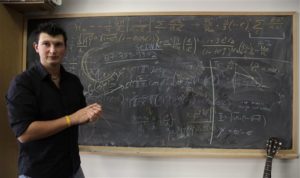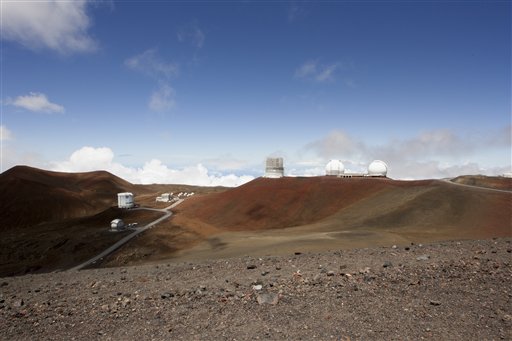Astronomers Announce Discovery of 9th Planet
February 19, 2016
By: Brenna Holycross
One new planet was found, and it proves you don’t have to see to believe.
On January 20th, 2016, astronomer Mike Brown announced that there appears to be a ninth planet in our solar system. This ninth planet that he found is expected to be ten-times more massive than Earth, so it would not turn out to be a dwarf planet like Pluto. However, it has not been seen yet.

For the first time in 150 years, Brown believes there is evidence that our solar system is incomplete. He and his colleague Konstantin Batygin believe that there is a ninth planet because orbits are being affected. The six previously known objects that orbit beyond Neptune are the orbits that are being affected.
Two of the six known objects are dwarf planets Sedna and Biden. Planet nine explains why they have weird orbits that never let them come in close to the solar system. NPR, National Public Radio, reported Brown said “This wasn’t something we were setting out to explain. This is something that just popped out of the theory.”
Mathematical equations lead them to conclude that planet nine has enough gravity to shape the orbits. According to NPR, Batygin and Brown studied the way objects line up in space and they realized that the only way to have these objects line up in this one direction is to have a massive planet lined up in the other. Brown said “I’m willing to take bets on anyone who’s not a believer.”
They are searching for this planet by using one large telescope in Hawaii that is owned by Japan. The name is the Sabaru. Along with its large field of view, the Sabaru has enough light gathering area to detect this far away planet. A new study about the planet shows the band of the sky where the astronomers should look, and it shows the orbit of the planet.

The orbit of planet nine is tilted, and is stretched distances that make the solar system a lot bigger than we thought. It’s distance from the sun is about 150 million kilometers, and because this planet is so far from the sun, one full orbit will take 15,000-20,000 years.
According to Time, it is not likely that a planet this large was formed from a primordial cloud of dust and gas that forms the rest of the universe because of the lack of material. Instead, Planet Nine might have been accreted, the bringing together under the influence of gravity, closer in like the other planets then ejected by their gravitational forces.
Also according to Time, Brown said “Planet 9 is part of the sun’s family. The birth cluster turned it around so it was placed in a distant orbit. It has been there all along and has witnessed the development of the solar system from afar.”
Along with that debate, there is debate going on about what the name should be. According to the Science Magazine, Brown says it is too early to worry about the name. He even refuses to take suggestions. Currently, Brown and Batygin are just calling it planet nine. News networks like NPR have even held surveys asking people what they should name it.
If Brown and Batygin have to choose a name to give to the International Astronomical Union, the IAU, to approve, they would name it George. This is because the astronomer William Herschel who discovered Uranus wanted to name it Georgium Sidus after King George III.
All together, Brown said, “Being able to make a prediction and having it come true in five minutes is about as fun as it gets in science.”





